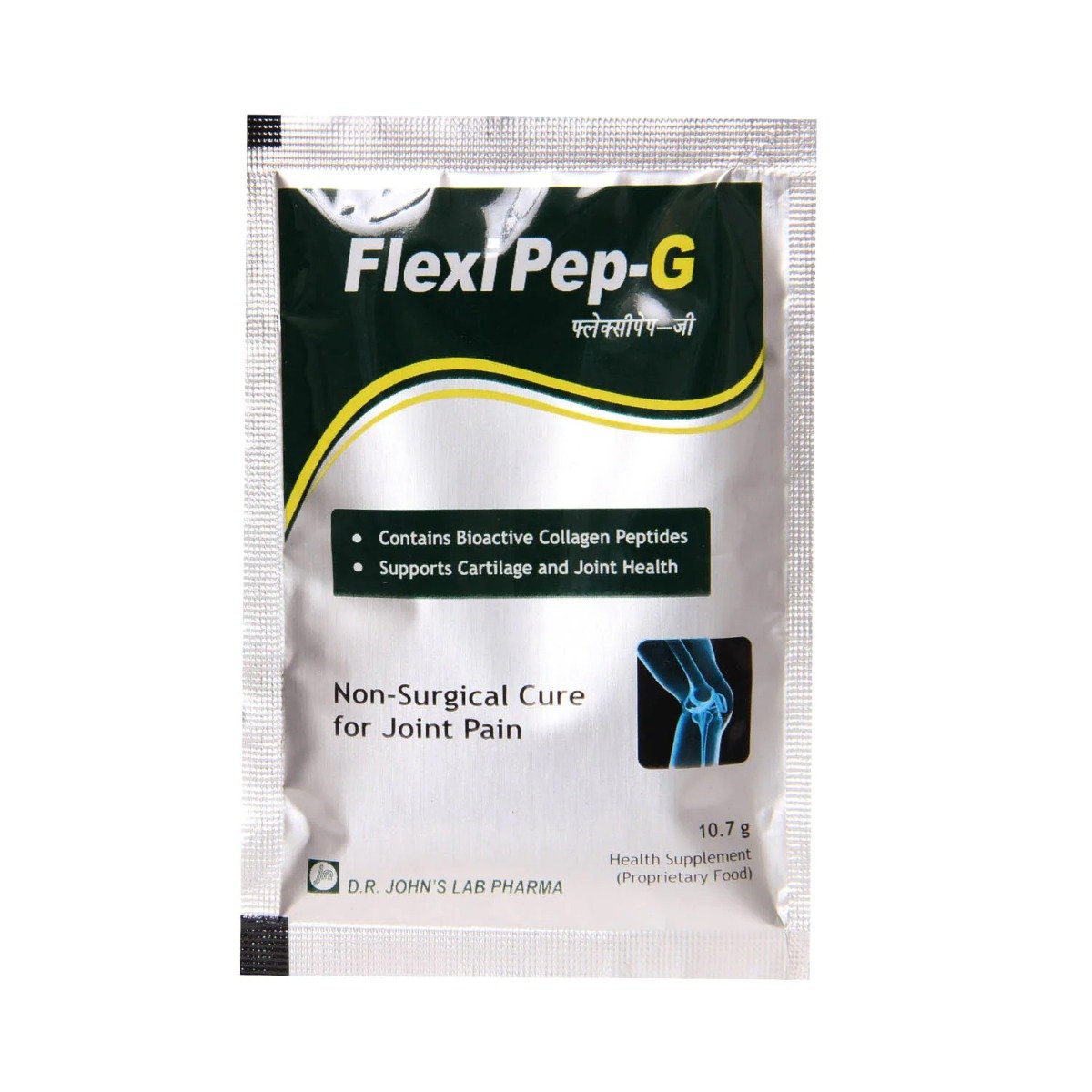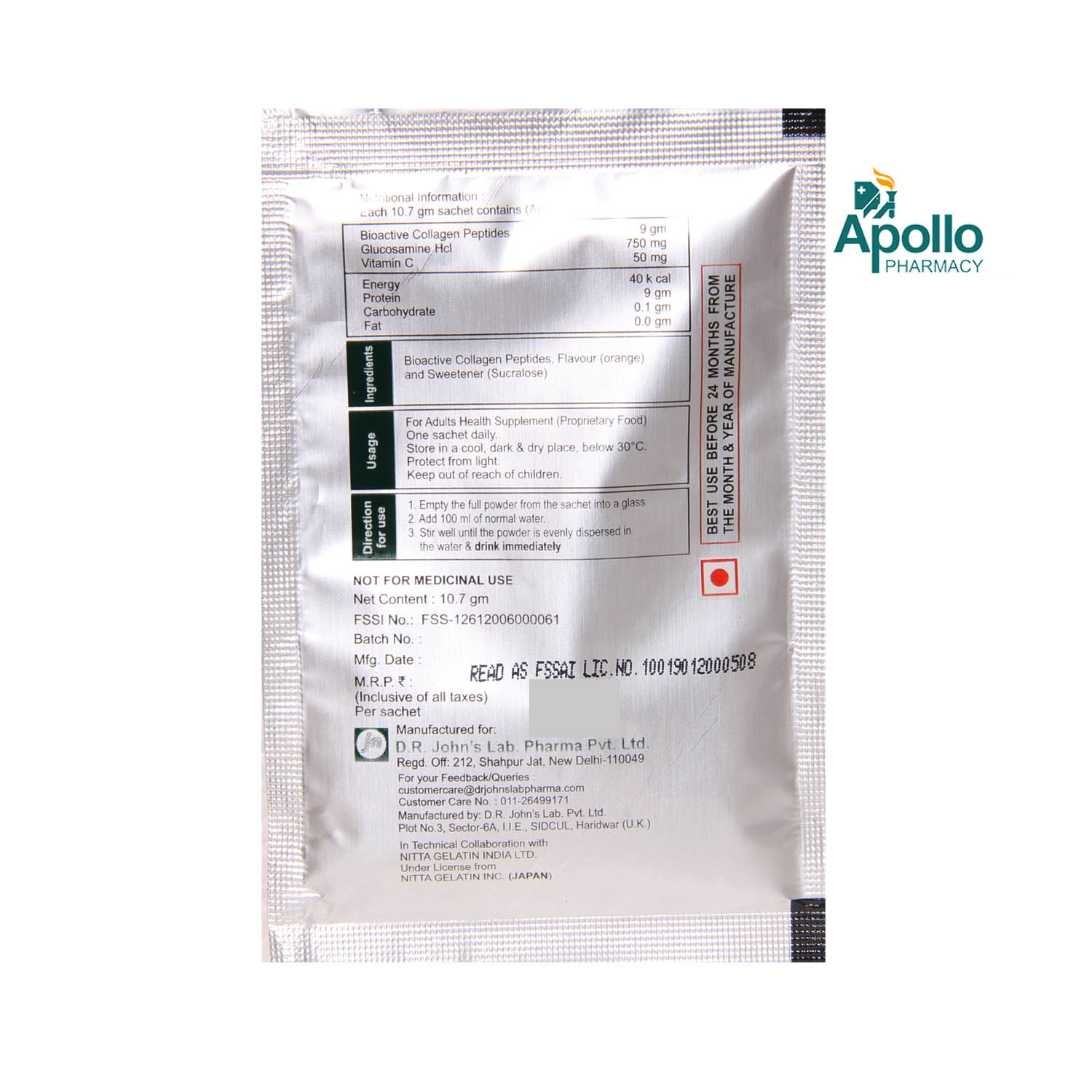Flexipep G Sachet 10.7 gm
MRP ₹69.5
(Inclusive of all Taxes)
₹10.4 Cashback (15%)
Extra 10% Off with Bank Offers
Country of origin
INDIA
Manufacturer/Marketer address
212, Choudhary Dilip Singh Bhawan Shah Pur Jat, New Delhi, Delhi 110049.
Other Info - FLE0210
Non returnable*
COD available
Online payment accepted

secured payment

india's most trusted pharmacy

genuine products
Manufacturer/Marketer :
DR Johns Lab Pharma Pvt Ltd
Consume Type :
Oral
Expires on or after :
Return Policy :
Not Returnable
Provide Delivery Location
FAQs
Disclaimer
While we strive to provide complete, accurate, and expert-reviewed content on our 'Platform', we make no warranties or representations and disclaim all responsibility and liability for the completeness, accuracy, or reliability of the aforementioned content. The content on our platform is for informative purposes only, and may not cover all clinical/non-clinical aspects. Reliance on any information and subsequent action or inaction is solely at the user's risk, and we do not assume any responsibility for the same. The content on the Platform should not be considered or used as a substitute for professional and qualified medical advice. Please consult your doctor for any query pertaining to medicines, tests and/or diseases, as we support, and do not replace the doctor-patient relationship.
All Substitutes & Brand Comparisons

Have a query?
Buy Now
Add to Cart















